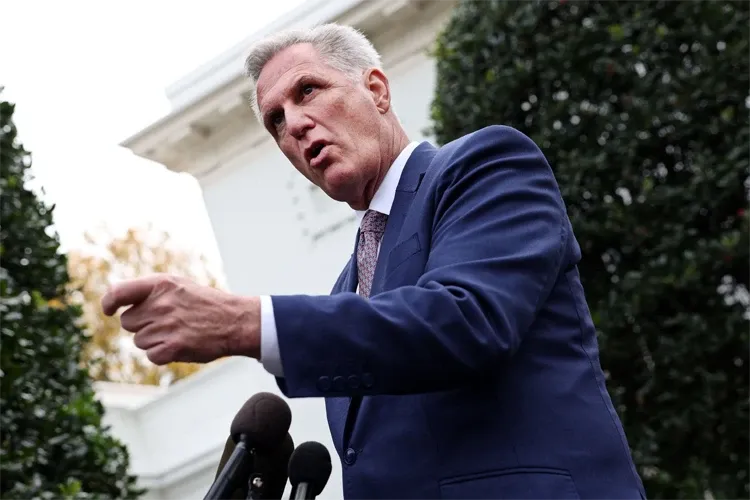After winning 222 seats in the House of Representatives, the Republican party has not elected a Speaker of the House after three ballots were cast. The House adjourned until noon on Wednesday.
Tuesday’s vote was the first time in a century that the election of a Speaker of the House took multiple ballots to complete. The last time an election for Speaker of the House required more than one ballot was in 1923, when Frederick Huntington Gillet secured the gavel on the ninth ballot. In 1855, Congress took over two months to elect a Speaker, finally electing Representative William Aiken of South Carolina after a record 133 ballots.
No members of Congress can be sworn into office until the Speaker is elected.
Rep. Kevin McCarthy (R-CA) was the House Minority Leader in the 117th Congress and would traditionally have been the first choice for Speaker of the House.
However, McCarthy has not gained the support of conservative Republicans, and did not win the required 218 votes. Rep. Jim Jordan received 18 votes on the third ballot and has become the top choice for the most conservative Republican members.
Jordan is not seeking the Speaker's chair, giving his support to McCarthy. Fellow members of the House Freedom Caucus have nominated Jordan on every vote, citing his record as much stronger than McCarthy's.
According to Rep. Scott Perry (R-PA), chair of the House Freedom Caucus, McCarthy has refused to make concessions.
“I think what he’s trying to do is the bare minimum that he needs to try and get to where he can get the votes,” Perry said. “And that’s not indicative of somebody that really wants to embrace new ideas, reject the status quo and unify all members in the conference.”
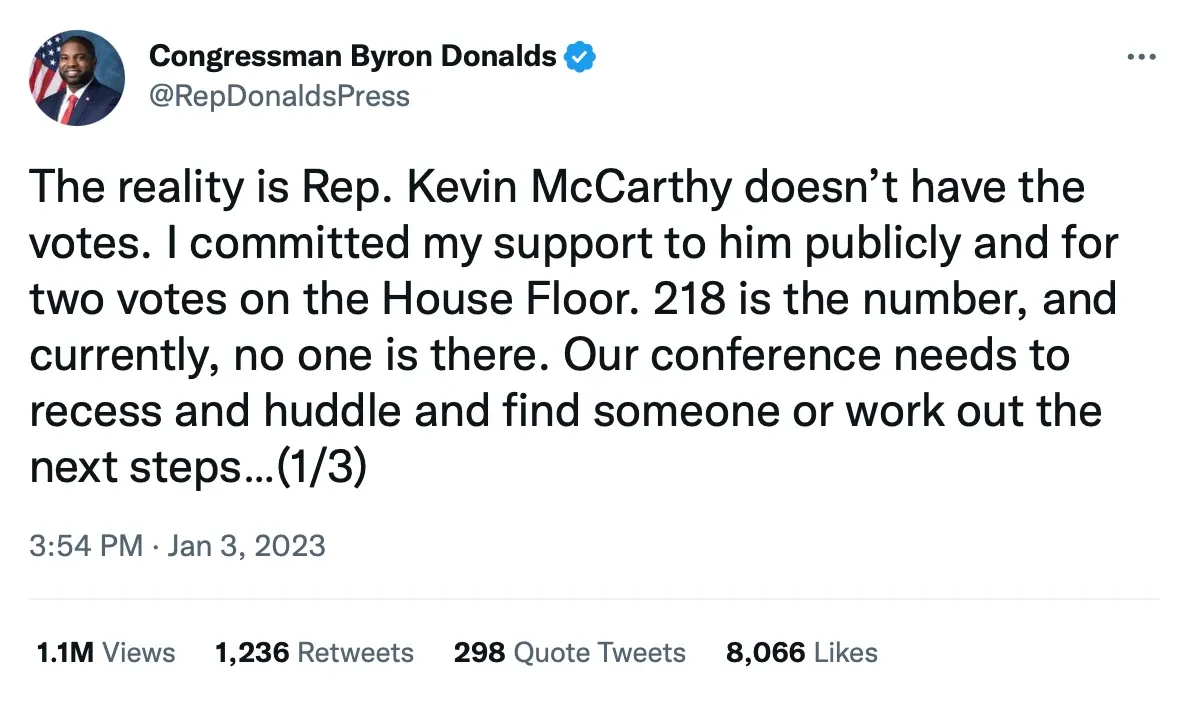
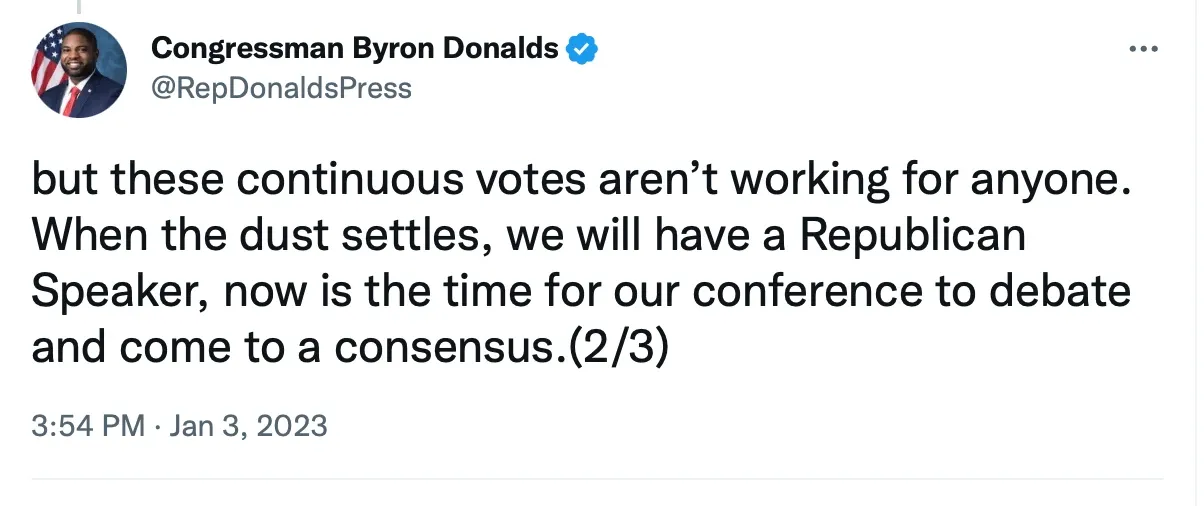
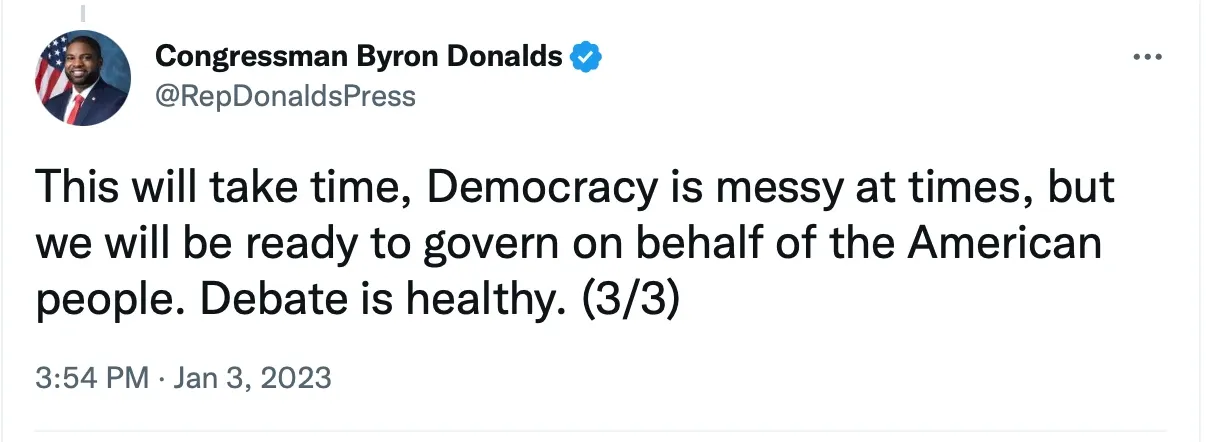
Rep. Dan Crenshaw (R-TX) has been critical of his Republican colleagues that voted against McCarthy, calling them “childish,” “narcissists”, and “enemies,” and stating “If I didn’t know any better, it’s like the Democrats paid these people off…” He tweeted that he voted for McCarthy because “he won our primary election with 85% of the vote” and that “Any ‘Republican’ doing otherwise is voting for Democrats.” Crenshaw received immediate backlash.
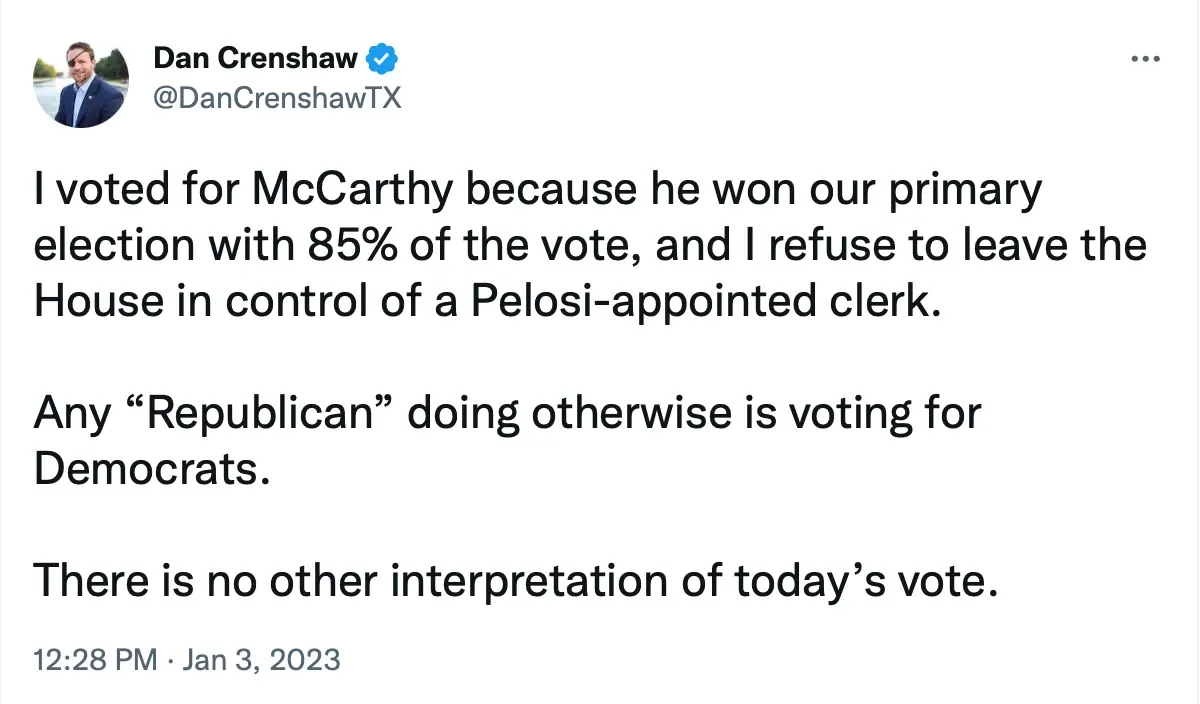
“You’re the guy who votes with democrats [sic] to send my money overseas yea?” tweeted one Twitter user.

“Ah, so now I know which side to take, thank you,” responded another. “Jim Jordan it is.”

Rep. Lauren Boebert told Newsmax the reason that many Republicans will not back McCarthy is due to his unwillingness to work with those outside of the establishment. "It's pretty simple,” she said. “[Rep. Kevin McCarthy] can come to us at any time and say, 'Let's work together to unify the party and get our country back on track just as each and every one of us campaigned on.'"


